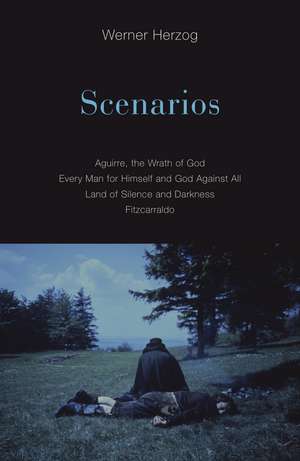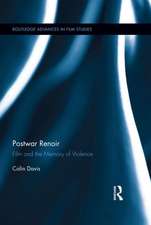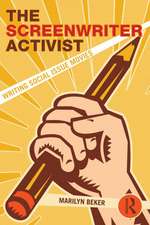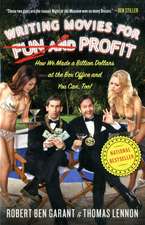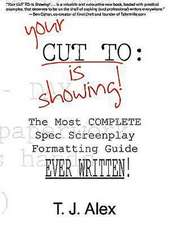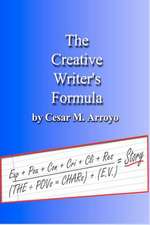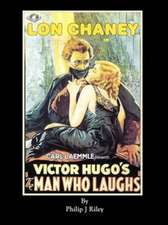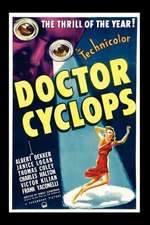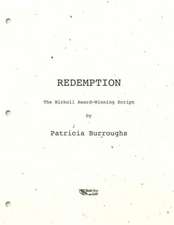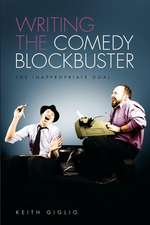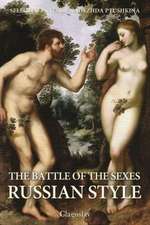Scenarios: Aguirre, the Wrath of God; Every Man for Himself and God Against All; Land of Silence and Darkness; Fitzcarraldo
Autor Werner Herzog Traducere de Martje Herzog, Alan Greenbergen Limba Engleză Paperback – oct 2017
I
do
not
follow
ideas,
I
stumble
into
stories
or
into
people;
and
I
know
that
this
is
so
big,
I
have
to
make
a
film.
Very
often,
films
come
like
uninvited
guests,
like
burglars
in
the
middle
of
the
night.
They
are
in
your
kitchen;
something
is
stirring,
you
wake
up
at
3
a.m.
and
all
of
a
sudden
they
come
wildly
swinging
at
you.
When I write a screenplay, I write it as if I have the whole film in front of my eyes. Then it is very easy for me, and I can write very, very fast. It is almost like copying. But of course sometimes I push myself; I read myself into a frenzy of poetry, reading Chinese poets of the eighth and ninth century, reading old Icelandic poetry, reading some of the finest German poets like Hölderlin. All of this has absolutely nothing to do with the idea of my film, but I work myself up into this kind of frenzy of high-caliber language and concepts and beauty.
And then sometimes I push myself by playing music, for example, a piano concerto by Beethoven, and I play it and write furiously. But none of this is an answer to the question of how you focus on a single idea for a film. And then, during shooting, you have to depart from it sometimes, while keeping it alive in its essence.
—Werner Herzog, on filmmaking
Werner Herzog doesn’t write traditional screenplays. He writes fever dreams brimming with madness, greed, humor, and dark isolation that can shift dramatically during production—and have materialized into extraordinary masterpieces unlike anything in film today. Harnessing his vision and transcendent reality, these four pieces of long-form prose earmark a renowned filmmaker at the dawn of his career.
When I write a screenplay, I write it as if I have the whole film in front of my eyes. Then it is very easy for me, and I can write very, very fast. It is almost like copying. But of course sometimes I push myself; I read myself into a frenzy of poetry, reading Chinese poets of the eighth and ninth century, reading old Icelandic poetry, reading some of the finest German poets like Hölderlin. All of this has absolutely nothing to do with the idea of my film, but I work myself up into this kind of frenzy of high-caliber language and concepts and beauty.
And then sometimes I push myself by playing music, for example, a piano concerto by Beethoven, and I play it and write furiously. But none of this is an answer to the question of how you focus on a single idea for a film. And then, during shooting, you have to depart from it sometimes, while keeping it alive in its essence.
—Werner Herzog, on filmmaking
Werner Herzog doesn’t write traditional screenplays. He writes fever dreams brimming with madness, greed, humor, and dark isolation that can shift dramatically during production—and have materialized into extraordinary masterpieces unlike anything in film today. Harnessing his vision and transcendent reality, these four pieces of long-form prose earmark a renowned filmmaker at the dawn of his career.
Preț: 154.57 lei
Nou
Puncte Express: 232
Preț estimativ în valută:
29.58€ • 31.63$ • 24.66£
29.58€ • 31.63$ • 24.66£
Carte disponibilă
Livrare economică 27 martie-10 aprilie
Livrare express 12-18 martie pentru 21.77 lei
Preluare comenzi: 021 569.72.76
Specificații
ISBN-13: 9781517903909
ISBN-10: 1517903904
Pagini: 368
Ilustrații: 5
Dimensiuni: 137 x 210 x 18 mm
Greutate: 0.29 kg
Ediția:1
Editura: University of Minnesota Press
Colecția Univ Of Minnesota Press
ISBN-10: 1517903904
Pagini: 368
Ilustrații: 5
Dimensiuni: 137 x 210 x 18 mm
Greutate: 0.29 kg
Ediția:1
Editura: University of Minnesota Press
Colecția Univ Of Minnesota Press
Notă biografică
Werner Herzog has produced, written, and directed more than seventy films. He grew up in a remote mountain village in Bavaria and now lives in Los Angeles, California. He is author of Of Walking in Ice: Munich–Paris, 23 November–14 December 1974 (Minnesota, 2015) and Conquest of the Useless: Reflections from the Making of Fitzcarraldo.
Recenzii
"A
compulsively
readable,
probing
collection.
It’s
equal
parts
challenging
and
satisfying,
infuriating
and
enlightening."—Publishers
Weekly
"Herzog seems to peer nonstop into the abyss combining vainglory, cruelty, and madness. Those are the coordinates at which Herzog geolocates humanity."—BookForum
"Scenarioscontains more than merely dialogue in cold type. Herzog’s screenplays read like novellas—the characters are fully thought-out and the settings are vividly described, albeit in long, medium and close shots."—Shepherd Express
"Herzog doesn’t write traditional scripts. Instead, Herzog writes scenarios which are like a hybrid of film, fiction, and prose poetry."—Film International
"Herzog seems to peer nonstop into the abyss combining vainglory, cruelty, and madness. Those are the coordinates at which Herzog geolocates humanity."—BookForum
"Scenarioscontains more than merely dialogue in cold type. Herzog’s screenplays read like novellas—the characters are fully thought-out and the settings are vividly described, albeit in long, medium and close shots."—Shepherd Express
"Herzog doesn’t write traditional scripts. Instead, Herzog writes scenarios which are like a hybrid of film, fiction, and prose poetry."—Film International
Descriere
I do not follow ideas, I stumble into stories or into people; and I know that this is so big, I have to make a film. Very often, films come like uninvited guests, like burglars in the middle of the night. They are in your kitchen; something is stirring, you wake up at 3 a.m. and all of a sudden they come wildly swinging at you.
When I write a screenplay, I write it as if I have the whole film in front of my eyes. Then it is very easy for me, and I can write very, very fast. It is almost like copying. But of course sometimes I push myself; I read myself into a frenzy of poetry, reading Chinese poets of the eighth and ninth century, reading old Icelandic poetry, reading some of the finest German poets like Hölderlin. All of this has absolutely nothing to do with the idea of my film, but I work myself up into this kind of frenzy of high-caliber language and concepts and beauty.
And then sometimes I push myself by playing music, for example, a piano concerto by Beethoven, and I play it and write furiously. But none of this is an answer to the question of how you focus on a single idea for a film. And then, during shooting, you have to depart from it sometimes, while keeping it alive in its essence.
—Werner Herzog, on filmmaking
Werner Herzog doesn’t write traditional screenplays. He writes fever dreams brimming with madness, greed, humor, and dark isolation that can shift dramatically during production—and have materialized into extraordinary masterpieces unlike anything in film today. Harnessing his vision and transcendent reality, these four pieces of long-form prose earmark a renowned filmmaker at the dawn of his career.
When I write a screenplay, I write it as if I have the whole film in front of my eyes. Then it is very easy for me, and I can write very, very fast. It is almost like copying. But of course sometimes I push myself; I read myself into a frenzy of poetry, reading Chinese poets of the eighth and ninth century, reading old Icelandic poetry, reading some of the finest German poets like Hölderlin. All of this has absolutely nothing to do with the idea of my film, but I work myself up into this kind of frenzy of high-caliber language and concepts and beauty.
And then sometimes I push myself by playing music, for example, a piano concerto by Beethoven, and I play it and write furiously. But none of this is an answer to the question of how you focus on a single idea for a film. And then, during shooting, you have to depart from it sometimes, while keeping it alive in its essence.
—Werner Herzog, on filmmaking
Werner Herzog doesn’t write traditional screenplays. He writes fever dreams brimming with madness, greed, humor, and dark isolation that can shift dramatically during production—and have materialized into extraordinary masterpieces unlike anything in film today. Harnessing his vision and transcendent reality, these four pieces of long-form prose earmark a renowned filmmaker at the dawn of his career.
